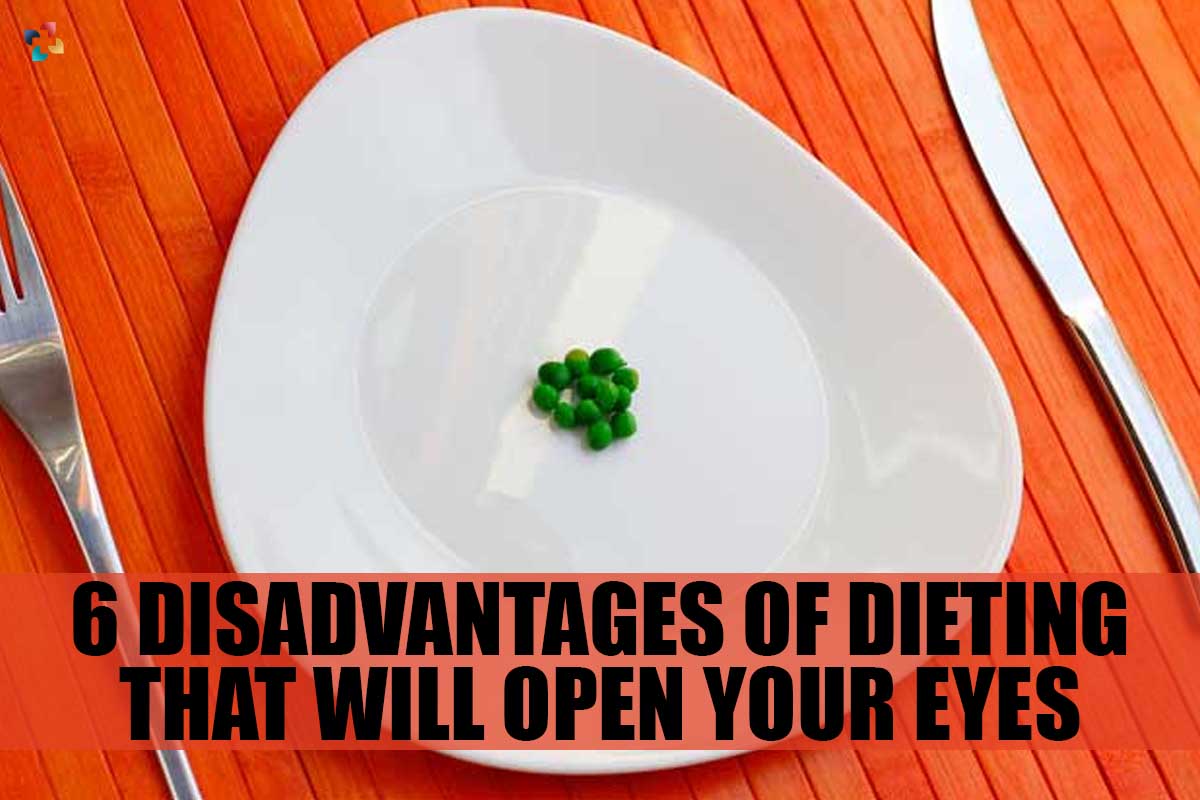Obesity is one of the major issues, especially among teenagers today. While there are various ways to overcome obesity, dieting is comparatively a more popular and easier method of losing weight. Dieting has become a part of many people’s lives. Whether it is to lose weight or to maintain a healthy lifestyle, has its advantages and Disadvantages of dieting.
However, it is important to know that anything done in excess is not good, and dieting is no exception. It has its disadvantages. In this article, we will be discussing six disadvantages of dieting that will open your eyes.
Here are 6 Disadvantages of dieting;
1. Restrictive and Unsustainable
One of the major disadvantages of dieting is that it can be very restrictive. Many diets require you to cut out certain food groups or limit your calorie intake. While this may help you lose weight in the short term, it is not sustainable in the long term. Restricting your food intake can also lead to feelings of deprivation and can make you crave foods that you are not allowed to eat. This can lead to binge eating and can undo all the progress you have made.
2. Slowed Metabolism

When you go on a diet, you are essentially restricting your food intake. This can cause your metabolism to slow down, making it harder for you to lose weight. When your body does not get enough calories, it goes into “starvation mode,” which means it slows down your metabolism in order to conserve energy. This can lead to a weight loss plateau, which can be frustrating for people who are trying to lose weight.
3. Nutrient Deficiencies
While dieting, you often have to cut out certain food groups, which can lead to nutrient deficiencies. For example, if you go on a low-carb diet, you may be cutting out whole grains, which are a good source of fiber, B vitamins, and minerals. If you go on a vegetarian diet, you may be cutting out animal products, which are a good source of protein and vitamin B12. If you are not careful, you may be depriving your body of essential nutrients that it needs to function properly.
4. Increased Risk of Eating Disorders

One of the disadvantages of dieting is an increase in the risk of developing eating disorders, such as anorexia nervosa and bulimia nervosa. When you are constantly monitoring what you eat and how much you weigh, it can lead to an unhealthy obsession with food and body image. This can lead to a cycle of restrictive eating, binge eating, and purging. It can be very harmful to your physical and mental health.
5. Decreased Energy Levels
When you are on a diet, you tend to restrict your calorie intake, which can lead to decreased energy levels. This can make it harder for you to exercise and can make you feel tired and lethargic throughout the day. This can also lead to mood swings, which can affect your personal and professional relationships.
6. Social Isolation

Dieting can also lead to social isolation. When you are on a diet, you may feel like you cannot participate in social activities that involve food, such as dinner parties, holidays, and social gatherings. This can lead to feelings of loneliness and can make it harder for you to maintain your diet in the long run.
In conclusion, dieting has its advantages, but it is important to know its demerits as well. The disadvantages of dieting are restrictive, and unsustainable, leading to slowed metabolism, nutrient deficiencies, increased risk of eating disorders, decreased energy levels, and social isolation. It is important to approach it with caution and to consult with a healthcare professional before starting any new diet.
The most important thing is to maintain a healthy and balanced diet that is sustainable in the long term. We hope you find the information in this blog insightful!








